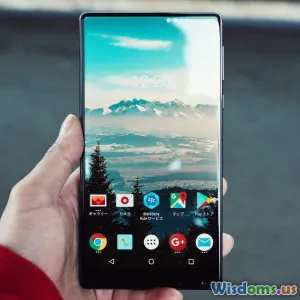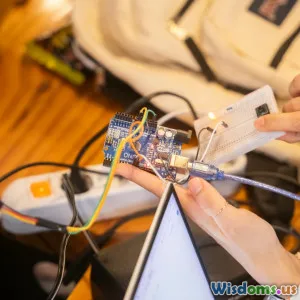
Will Kotlin Replace Java for Android Development Soon
8 min read Explore whether Kotlin will supplant Java in Android development amidst evolving tech landscapes and developer preferences. (0 Reviews)
Will Kotlin Replace Java for Android Development Soon?
Android development stands at an interesting crossroads. Once dominated almost entirely by Java, the ecosystem is now experiencing a significant surge of Kotlin adoption. But the question remains: Will Kotlin replace Java as the primary language for Android development anytime soon? To understand this complex transition, it's necessary to analyze language features, community trends, corporate backing, and developer preferences.
The Genesis of Java’s Dominance in Android
Java has been the backbone of Android development since the platform's inception in 2008. Its "write once, run anywhere" philosophy, mature ecosystem, and widespread adoption made it a natural choice for Android developers around the world.
Java’s Strengths
- Maturity and Stability: Java is a veteran language with decades of development, offering a stable platform.
- Vast Libraries and Tools: The Java ecosystem thrives with numerous libraries, frameworks, and extensive documentation.
- Developer Familiarity: As one of the most taught programming languages globally, countless developers are proficient in Java.
However, Java’s age has also become a source of complexity, verbosity, and boilerplate code. Android developers often find themselves writing lengthy submissions just to achieve simple features.
Enter Kotlin: A Modern Approach
Kotlin was introduced by JetBrains in 2011 and gained official support for Android development by Google in 2017. It is a statically-typed language built to be fully interoperable with Java while offering a modern, concise, and expressive syntax.
Why Kotlin Appeals to Developers
- Conciseness: Kotlin reduces boilerplate code drastically. For example, data classes in Kotlin automatically generate getters, setters, equals, hashCode, and toString — all with a simple declaration.
- Null Safety: Kotlin’s built-in null safety system drastically reduces null pointer exceptions, a notorious source of Android app crashes.
- Coroutines for Asynchronous Programming: Kotlin's coroutines simplify asynchronous code, making complex operations easier to manage.
- Interoperability: Kotlin runs on the JVM and is fully interoperable with Java, meaning existing Java codebases can incorporate Kotlin incrementally.
Industry Adoption and Google’s Endorsement
In 2019, Google announced that Android development would become "Kotlin-first." This moment marked a pivotal step indicating that Kotlin was not merely a complementary language but a strategic choice for the platform's future.
Developer Adoption Stats
According to a Stack Overflow Developer Survey in 2023:
- Kotlin use among Android developers surged to over 70%, up from 20% in 2017.
- Java usage has decreased but still remains significant at around 50%, indicating overlap and transition rather than abandonment.
Major Android apps including Trello, Evernote, Coursera, and Pinterest have integrated Kotlin, showcasing its practical benefits.
Technical Advantages Over Java: When Kotlin Shines
Reducing Boilerplate
A common complaint among Android developers is verbosity. Kotlin’s syntax offers elegant solutions:
// Java equivalent
public class User {
private String name;
public User(String name) { this.name = name; }
public String getName() { return name; }
}
// Kotlin
data class User(val name: String)
This simplicity keeps mistakes at bay and accelerates development.
Enhanced Null Safety
NullPointerExceptions cause nearly 30% of Android crashes according to Firebase Crashlytics. Kotlin’s type system prevents many of these at compile-time.
Coroutines Simplify Asynchronous Code
Handling background tasks asynchronously is simpler with Kotlin coroutines compared to Java's complex Runnable or Executor frameworks.
Challenges and Barriers for Kotlin
Despite its merits, Kotlin is not without challenges.
- Learning Curve: Experienced Java developers must invest time to master Kotlin’s idioms, which can slow transition.
- Tooling Maturity: While the JetBrains IntelliJ IDEA IDE offers excellent Android support, some third-party toolchains and legacy systems still favor Java.
- Build Speed: Kotlin compilation times have historically been slower than Java’s, although recent improvements are mitigating this.
Java’s Ongoing Role and the Reality of Coexistence
The idea that Kotlin will outright replace Java is tempting but oversimplified.
- Legacy Codebases: Billions of lines of Java code power existing Android apps, so immediate replacement is impractical.
- Interoperability: Seamless mixed coding environments encourage gradual adoption.
- Java’s Industry Uptime: Java continues evolving (e.g., Project Loom for concurrency). Google itself continues supporting Java in Android SDKs.
Per Jake Wharton, a notable Android developer and Kotlin advocate: "Java is not dead. Kotlin is better for new Android code, but both languages live comfortably side by side."
Future Prospects: Should Developers Switch to Kotlin?
If you’re starting Android development today, Kotlin offers efficiency and modern design patterns that translate to fewer bugs and faster development.
Industry Momentum
Google’s active promotion of Kotlin and established community support make it a safe choice to future-proof your skills.
Hybrid Approach
Veteran developers often maintain existing Java code while incorporating Kotlin in new features, balancing risk and innovation.
Corporate Perspective
Enterprises like Uber and Pinterest transitioning to Kotlin show confidence in the language's capabilities.
Conclusion
While Kotlin has risen impressively with undeniable advantages and official endorsement, Java remains deeply embedded in the Android ecosystem. Rather than outright replacement, a gradual, hybrid coexistence is unfolding. Kotlin is transforming Android development into a more modern, enjoyable process, but developers and organizations will likely continue relying on Java in the medium term.
Kotlin is not just a threat to Java but an evolution of Android programming. The true answer isn’t if Kotlin will replace Java soon, but rather how both languages will shape the future of Android in tandem.
As Android grows and matures, embracing Kotlin's modern features while acknowledging Java's strengths offers the most pragmatic path forward.
References
- Google Android Developers Blog, "Kotlin is now official on Android": https://android-developers.googleblog.com/2017/05/announcing-first-class-support-for.html
- Stack Overflow Developer Survey 2023: https://insights.stackoverflow.com/survey/2023
- JetBrains Kotlin Documentation: https://kotlinlang.org/docs/home.html
- Firebase Crashlytics blog, "Tracking crucial app crashes": https://firebase.googleblog.com/2020/10/fiber-crashlytics.html
- Jake Wharton's Articles & Talks on Kotlin and Android: https://jakewharton.com
Rate the Post
User Reviews
Other posts in Software Engineering
Popular Posts


















